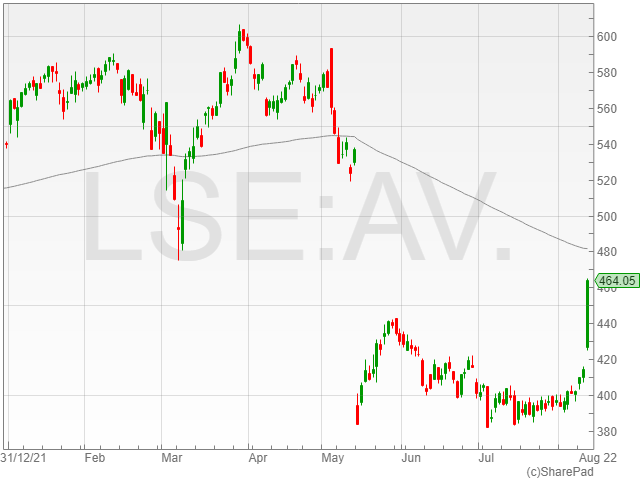Aviva shares flew 11.8% to 463.5p in late afternoon trading on Wednesday, after the insurance company reported a 14% growth in operating profit to £829 million in HY1 2022 compared to £725 million the year before.
The group announced a 46% rise in solvency II OFG to £538 million from £369 million, along with a 27% Solvency II pro forma cover ratio climb to 213% against 186% year-on-year.
Aviva noted a 2.4% increase in general insurance COR to 94% from 91.6%.
“Sales are up, operating profit is higher, our financial position is stronger. This has been an excellent six months for Aviva,” said Aviva CEO Amanda Blanc.



“Trading has been encouraging across all our major businesses in insurance, wealth and retirement. Even so, we are very conscious of the pressures currently facing many of our customers, especially the more vulnerable.”
“In response we have launched new, low cost, insurance products, and we are increasing the range and amount of support we provide to communities, businesses and our own people during this challenging time.”
Dividend and proposed share buyback
The firm hiked its dividend 40% to 10.3p compared to 7.3p the last year, and announced a proposed share buyback programme in its FY 2022 results, pending market and regulatory approval.
“Delivering for our shareholders is at the core of our strategy. Our liquidity and capital position is extremely healthy and we are declaring an interim dividend of 10.3p, in line with our full year 2022 dividend guidance of c.31.0p,” said Blanc.
“We are increasingly confident in Aviva’s prospects and anticipate commencing additional returns of capital to shareholders with our 2022 full year results.”





